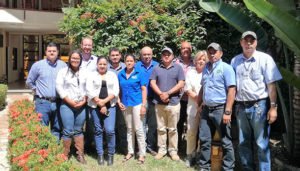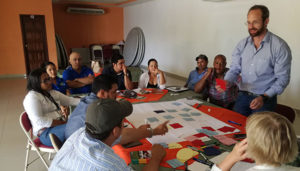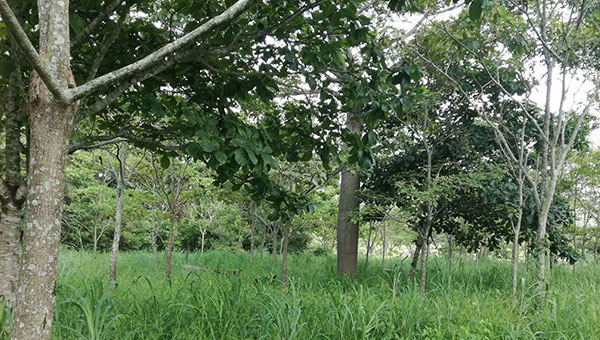- The project seeks to support countries to reach national and international biodiversity objectives
September 28 2018, Thanks to the financial support of the International Climate Initiative (IKI) of Germany there is a project that is being excecuted, which will help Honduras and four more countries (Indonesia, Rwanda, Uganda and Peru), to incorporate the trees’ potential in farms to the implementation of the Biodiversity National Strategy; which has the mandate to transfer the goals of the United Nations Convention on Biological Diversity (UNCBD) named “Aichi” to a national context.
The project lasts four years (2017-2021) and was profiled by a consortium of institutions led by the World Agroforestry Centre (ICRAF) and integrated by CATIE (Tropical Agricultural Research and Higher Education Center), the International Union for Conservation of Nature (IUCN), the Center for International Forestry Research (CIFOR), Georg-August-Universität Göttingen and Leibniz Universität Hannover, both from Germany.
According to Edwin García, coordinator of CATIE-Honduras project, the objective is to improve the capacity of the countries to reach several Aichi goals for Biological Diversity; especially what concern goals Aichi #2 (the values of biodiversity have integrated to national and local strategies of development and reduction of poverty in planning processes , and are being incorporated in the national accounting, and the presentation systems report), Aichi #7 (Agricultural, aquaculture and silviculture areas are managed in a sustainable way, guaranting biodiversity conservation) and Aichi #20 (more movilization of financial resources for the effective implementation of the Strategic Plan for Biological Diversity 2011-2020)
“The knowledge on relationships among tres, agriculture and biodiversity will increase and will provide tools for producers, extensionists, decision makers and investors. Additonally it will evaluate a range of financial options and investments in order to increase the investment of trees in agriculture and will help local partners to elaborate action ways and business plans,” indicated García
He also added that the project will prepare manuals that will describe viable, cost-effective and attractive options to increase the use of trees in agricultural lands of each country and also it will be designed a tool on evaluation of biodiversity, one that could be use to measure the contribution of trees in farms to biodiversity and sustainability, which will help governments to verify efforts aimed to restore ecosystemic services in agricultural landscapes.
First Steps
García explained that the first step in the implementation of the project in Honduras was a workshop of insertion to restablish contact with the local actors and begin the construction of a joint agenda. To this workshop that took place in June, assisted more than 20 organization, among which were present decision makers of a variety of sectors like ministries, local units, representatives of productive chains, international support agencies and academy.
The participants at the workshop supported the goals and impacts expected with the project; optimize the management of trees in farms to improve the means of life in the rural populations, conserve biodiversity and help the government to achieve and report its contributions to the Aichi goals Just like its operational proposal; use science to show evidence of the trees value in the farm to improve means of life and biodiversity and improve legal and political frames to estimulate the plantation, management and use of trees.
“The idea is also to include some other guilds and chambers agricultural and forestry producers and representatives of the national financing system that support the agricultural and forestry production in the country and could incorporate the financing of trees in farms in their financial portfolios,” added García.
Among the next activities of the project in Honduras are: “The development of a group of evaluation biodiversity tools to follow up the progress in goal 7 of Aichi,” which will take place in Tegucigalpa from Nomberber 11 to the 17 of the present year, with the participation of more than 20 international experts in biodiversity coming from five countries where the project is executed.




